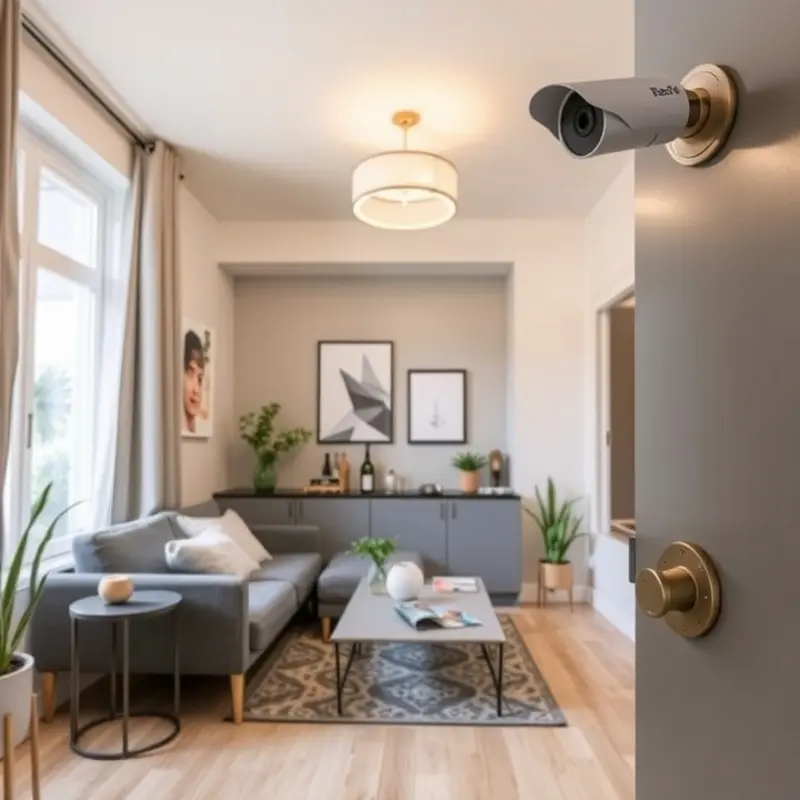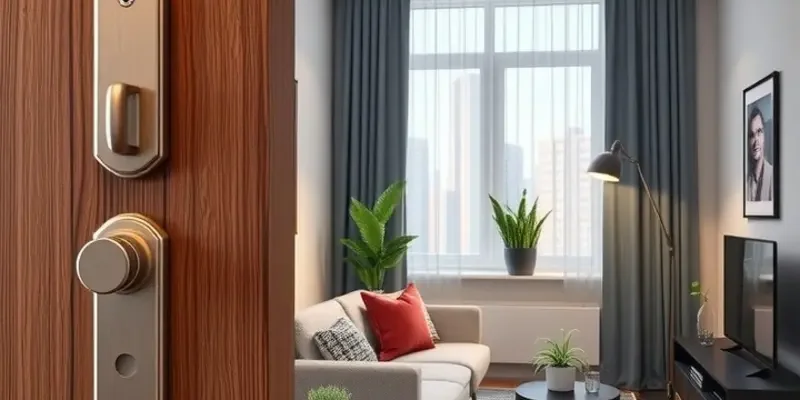Renting a home is a rite of passage for many, especially young professionals, students, and families just starting their journey. However, navigating the complexities of rental agreements and understanding your rights can feel overwhelming. Among the critical areas of concern are security issues—ensuring your new home is safe from crime and hazards, and knowing your rights regarding locks, surveillance, and safety standards. Whether you’re a first-time renter or a couple looking to move in together, grasping these details is essential for peace of mind. In this guide, you’ll learn about your rights and responsibilities as a tenant, what security measures landlords must provide, and how to address any concerns. With this knowledge, you’ll be better equipped to protect yourself and advocate for your well-being in your new rental environment.
Your Safety: Understanding Security Rights

Renters, often taking their first steps into the world of leasing, must be aware of their right to a safe living environment. This fundamental right underscores the landlord’s obligation to provide a secure space. The assurance of safety stems from several key security components: solid doors, effective locks, operational security systems, and proper maintenance.
Firstly, let’s delve into locking mechanisms. Landlords are responsible for installing functioning locks on all accessible doors and windows. Deadbolt locks should complement door handle locks, offering a robust first line of defense. Renters should ensure that all locks, including those on windows, are in proper working condition upon moving in. If any repairs or replacements are needed, request them in writing. Certified mailing of this request can provide documentation of maintenance communication.
Security systems represent another layer of protection. While not all rental units come equipped with security systems, landlords must ensure any pre-installed systems are operational. If a renter wishes to enhance security with additional systems, it’s essential to communicate with the landlord. Obtaining prior approval can prevent conflicts and ensure compatibility with existing structures. It’s prudent to understand any associated costs, as these may not fall under the landlord’s obligations.
Proper maintenance significantly impacts the level of safety in a rental unit. Landlords must conduct regular checks and quickly address repair needs that may compromise security. This includes addressing broken doors, defective locks, and malfunctioning intercoms. Renters should regularly inspect these elements and promptly report issues.
Legal frameworks support renters’ rights to a secure environment. Renter protection laws vary by region, yet they commonly mandate that landlords uphold certain safety standards. A clear understanding of these laws empowers renters to assert their rights effectively.
Considering broader safety concerns, renters can explore additional strategies to enhance their home security. For example, implementing apartment-friendly DIY cleaning products can contribute to a healthier living environment, indirectly promoting safety as outlined in this guide on safe DIYs.
By comprehending and acting on these security measures, renters can cultivate a living space that not only meets legal safety standards but also fosters personal peace of mind. The process may seem daunting initially, yet thorough understanding and proactive measures can ensure your home is a sanctuary of safety.
What to Do When Security is Compromised

Discovering that your security is compromised can be a distressing experience. Taking immediate action is crucial to ensure your safety and protect your rights as a renter.
1. Assess the Situation
Before taking any steps, evaluate the extent of the security breach. Determine if there was unauthorized access or if safety devices like locks or alarm systems have been tampered with. If a crime has been committed, it is essential to contact law enforcement immediately.
2. Communicate with Your Landlord
Once you have a clear understanding, notify your landlord or property management about the issue. It’s important to do this in writing to keep a record of your communication. Highlight specifics about the compromised security and ensure you state your concerns clearly. Politely request an urgent review and necessary repairs or upgrades.
If the issue is related to building-wide systems, engaging with your landlord promptly can mitigate risks and prevent future incidents.
3. Document Everything
Maintain a detailed record of everything related to the security breach. Take photos or videos if possible, and log conversations and any correspondence with your landlord. This documentation is critical, particularly if you need to escalate the issue.
4. Understand Your Legal Rights
Familiarize yourself with the housing laws applicable in your area. Laws often dictate security obligations landlords must meet, and understanding these can empower you to advocate effectively for repairs or improvements.
In circumstances where the landlord is unresponsive or neglects their duty, consider seeking legal advice. Many local tenant unions or housing advocates offer resources or legal clinics. Eviction due to landlord negligence on security should not occur without legal backing.
5. Know When to Escalate
If the landlord fails to address your concerns or if the issue is urgent and safety is compromised, you may need to take further action. Sending a formal letter, citing specific lease terms and local housing laws, can demonstrate seriousness. If this doesn’t work, mediation services might be a viable next step before pursuing legal action.
6. Utilize External Resources
Exploring available resources is crucial for renters facing severe issues. Besides local tenant rights organizations, online platforms can offer valuable insights. For example, learn about safe habits within your space to enhance your existing security: Safe Apartment Laundry Habits.
7. Personal Safety Measures
While resolving security issues, protect yourself by implementing temporary safety measures. Consider installing removable window locks or personal alarm systems, which are often renter-friendly and don’t require alterations to the property.
Feeling secure in your living environment is a fundamental right. By understanding and asserting your rights, communicating effectively, and utilizing available resources, you can tackle security issues confidently and ensure your tenancy experience remains positive and safe.
Final words
Understanding your rights concerning security issues is pivotal for enjoying your rental experience without worry. As a new renter, knowing what your landlord is legally required to ensure safety can not only ease your transition into a new home but also empower you to tackle any potential issues confidently. If you find yourself facing security concerns, you have the right to communicate your needs to your landlord or seek legal advice if necessary. Stay informed, stay safe, and remember that your home should be your sanctuary.









